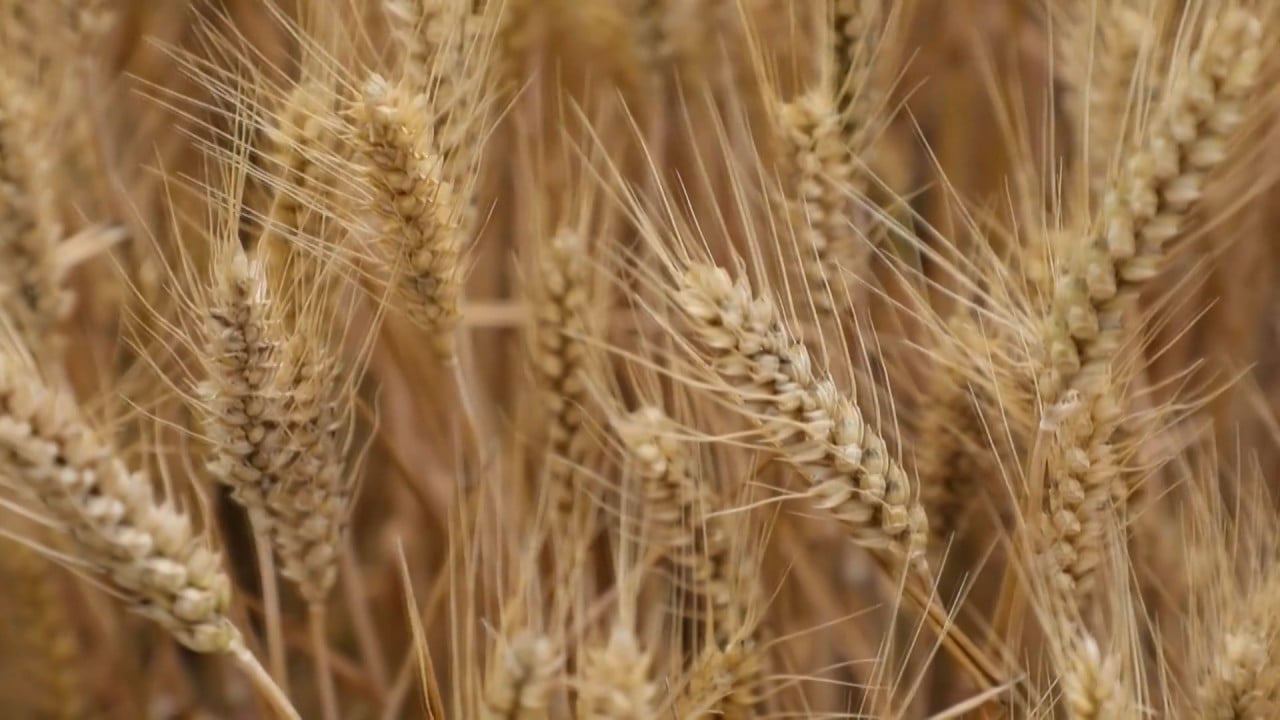
China vows to boost farm output, seed research in renewed food security, tech self-reliance push
- Annual rural policy blueprint from State Council vows to stabilise grain-planting area and focus on ‘significantly increasing per-unit yield’
- Renewed self-sufficiency push comes as US tensions, climate change and supply chain worries over Ukraine war weigh on global market outlook
The annual rural policy document, released by the State Council on Saturday, vowed to stabilise the country’s grain-planting area and focus on “significantly increasing per-unit yield”.
The latest blueprint, usually the first one released by China’s cabinet each year, underscores the strategic importance of food security for the country of 1.4 billion people.
China is the world’s biggest grain producer and consumer, and has vowed to boost grain self-sufficiency over the next decade. Grain harvests last year hit a record 695.41 million tonnes, according to official data. Output has remained above 650 million tonnes since 2015, and is also the target set for this year.
However, the country also depends on imports for certain crops, due to changing consumer demands and cheaper alternatives for animal feed such as soybeans and corn.
The blueprint vowed to expand the plantation of soybean and other high-yield oilseed varieties this year.
China vows to boost crop yields, Xi calls for investment in ‘lifeblood’ land
Last year, the area under cultivation for rice saw a slight drop but that for soybeans increased, thanks to farmer incentives. But the yield per unit of key products such as soybean and corn has long lagged behind the world average.
Beijing has in recent years ramped up seed research efforts. The sector is seen as a weak link in China’s food security goals, especially amid tensions with the US-led West.
Policymakers have also increasingly focused on food security amid uncertainties in a global market hit by geopolitical tensions, climate change and supply chain worries over the war in Ukraine.
Several varieties of genetically modified corn and soybeans have been approved since last year in a drive to raise production and reduce reliance on the overseas market.
Saturday’s document also pledged to “step up efforts” to produce urgently needed “independent and superior” seed varieties.
According to the blueprint, national and provincial investment subsidies will be increased, and diverse channels sought to expand food sources and build a diversified supply system.
“Efforts will be made to enhance both the quantity and quality of arable land, decisively rectify illegal activities such as unauthorised occupation and damage to farmland,” a Central Rural Work Leading Group official was quoted as saying by state news agency Xinhua. The group is the party organ responsible for rural and agricultural affairs.
Boosting farmers’ incomes will also be prioritised to prevent a large-scale return to poverty, as part of rural revitalisation efforts after Beijing announced the eradication of rural poverty in early 2021.
This comes as a slower-than-expected post-Covid economic recovery hits the living standards for many rural low-income groups as job opportunities dry up.
The blueprint vowed to step up industrial and employment support for workers, and “to stabilise the scale of employment for those who got lifted out of poverty”.


